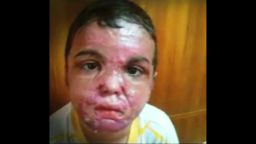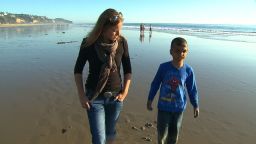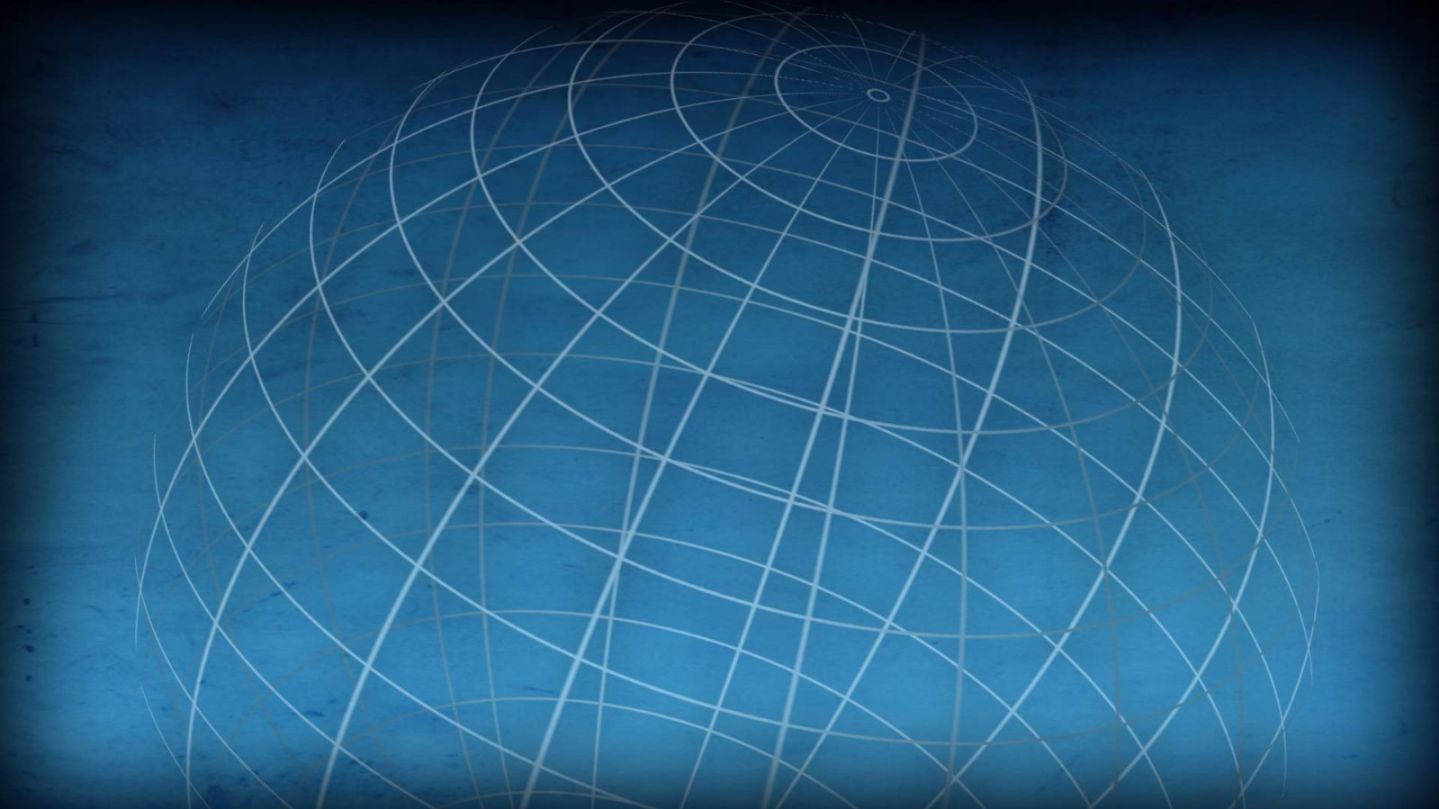Editor’s Note: Arwa Damon is a senior international correspondent based in CNN’s Istanbul bureau. In April, she received the World of Children’s 2017 Crisis Award for her work starting INARA, a charity which aids children affected by war. While at the ceremony, Damon had the chance to spend time with a young man who holds a special place in her heart. The opinions in this article are solely those of the author.
Story highlights
Masked men doused Youssif with gas and set him on fire in 2007
After his story aired, CNN viewers donated to his cause
Youssif had extensive facial reconstruction and counseling in the United States
“Superman is one of my favorite superheroes because he also struggled to fit in and was different, but in the end he was accepted and made his mark and I can somehow relate to that,” said Youssif to those gathered at the World of Children gala in Los Angeles in April.
Now in his early teens, he looked so handsome, confident and unwavering. This was the same young man we had met a decade ago who was sullen, angry and mad at a world he was too young to even understand.
“All children should have a chance to make their dreams come true,” Youssif said at the conclusion of his speech.
The beautifully dressed crowd burst into a standing ovation, and I was there on the stage next to him.
I couldn’t help the tears that stung my eyes. Tears of pride and awe. Tears at the injustice he had suffered and the thought that no one, no child should ever go through anything like he did. Tears of hope stemming from the knowledge that we can still make a difference if we unite.
And to echo what I said then, my voice cracking, “I think what is so amazing about this moment is that Youssif doesn’t realize how much he has given all of us.”
We first met and reported Youssif’s story in August 2007.
I remember him sitting in our kitchen at the CNN Baghdad bureau, his face a hardened mask of scar tissue. He was pushing one grain of rice at a time through lips he could barely open.
Masked men had doused 4-year-old Youssif with gas and set him on fire as he played outside his Baghdad home. His parents were at a loss. All they wanted was their little boy back — and to hear him laugh again.
I remember how anxious we all were before the story aired, not knowing what reaction it would generate. And most of all, I remember calling his parents, the best phone call I have had the honor and pleasure of making, to say, “Your little boy is going to get help.”

For the outpouring of support came from all over the world; it transcended boundaries, cultures and religions. The Children’s Burn Foundation in Los Angeles took on Youssif’s case and CNN viewers donated hundreds of thousands of dollars.
For our Iraqi staff at the time, living in Baghdad under constant bombardment and threat, the tremendous response to Youssif’s story gave them hope. It gave them hope that the world had not entirely turned away. That there were people out there whose voices we may not always have the opportunity to hear, but who cared.

For CNN, reporting Youssif’s story led to the launch of the Impact Your World initiative. For the last 10 years, Impact has identified vetted organizations helping those in need across the globe so viewers can donate and make a difference.
And for me, the public’s reaction after Youssif’s report aired served to remind me of the kindness of strangers and planted the first thoughts of how I could potentially engage that generosity. Those thoughts led to starting my nonprofit, the International Network for Aid, Relief and Assistance (INARA).
INARA is turning two years old and has helped dozens of children impacted by war who have fallen though the gaps, who need life-altering or lifesaving medical care not provided by others. Children like Youssif.
Today, he no longer remembers the attack, but he remembers the people who helped him and his family. Over the years, Youssif has undergone multiple surgeries and there is still the potential for many more to come. He wants to be a doctor so he, too, can one day help others.
That is the ripple effect of one little boy’s story, a story whose impact is not yet over – a true testament to the power we have when we remember our humanity and compassion.




